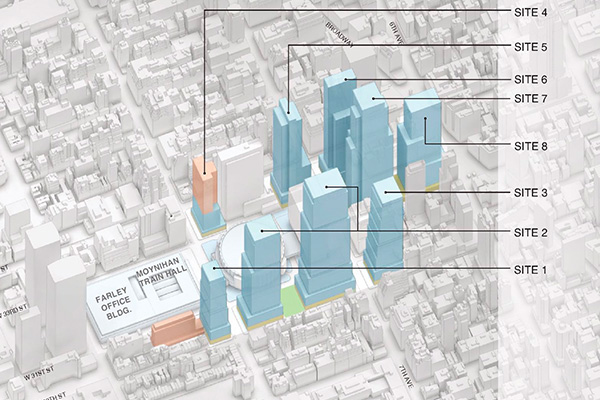Questions continued to outnumber answers at an all-day State Senate hearing on the Penn Station Redevelopment plan on June 24. The Conservancy was invited to testify and warned against the wholesale demolition of a vibrant neighborhood with historic buildings, homes, and businesses. Other participants noted the lack of fiscal details and accountability, and two longtime residents spoke movingly of their fears of eviction.
Senators Liz Krueger and Leroy Comrie, who chair the Senate Standing Committees on Finance, and on Corporations, Authorities, and Commissions, respectively, had questions about the plan’s financing and who would be responsible to residents and elected officials if it ran over budget or schedule.

Speakers from Empire State Development (ESD) and the MTA provided little additional information about how funds would be raised or spent. ESD president Hope Knight said a financial framework would be made public before a State board vote on the plan in July, leaving no time for meaningful changes. MTA Chair Janno Lieber revealed that key features of the renovation will be expanding entrances and removing part of the upper concourse to allow light into the station. But there was no mention of any transit improvements.
The Conservancy’s main issue is the planned destruction of a swath of Midtown Manhattan that contains several notable historic buildings and businesses that employ more than 8,000 people. This is a return to urban renewal, which was discredited years ago. We also decry the lack of public information and participation, because the State bypassed the City’s own transparent zoning and community engagement practices.
Others raised questions about the need for giant new office towers. The State says revenue from the towers would fund station renovations, but not transit improvements. Several people noted that the plan assumed that Madison Square Garden would stay in place, while the City’s tax breaks for the Garden end next year. Others asked how much federal funding is available; and why the State isn’t planning to raise bonds to pay for capital improvements, as it has traditionally done.
Our testimony labeled the plan “bad for New York; bad for taxpayers; bad for the environment, and profoundly anti-urban.”
We will continue to monitor this issue and will release comments on the financial framework when it is made public.
